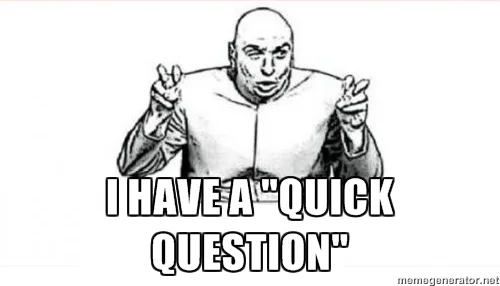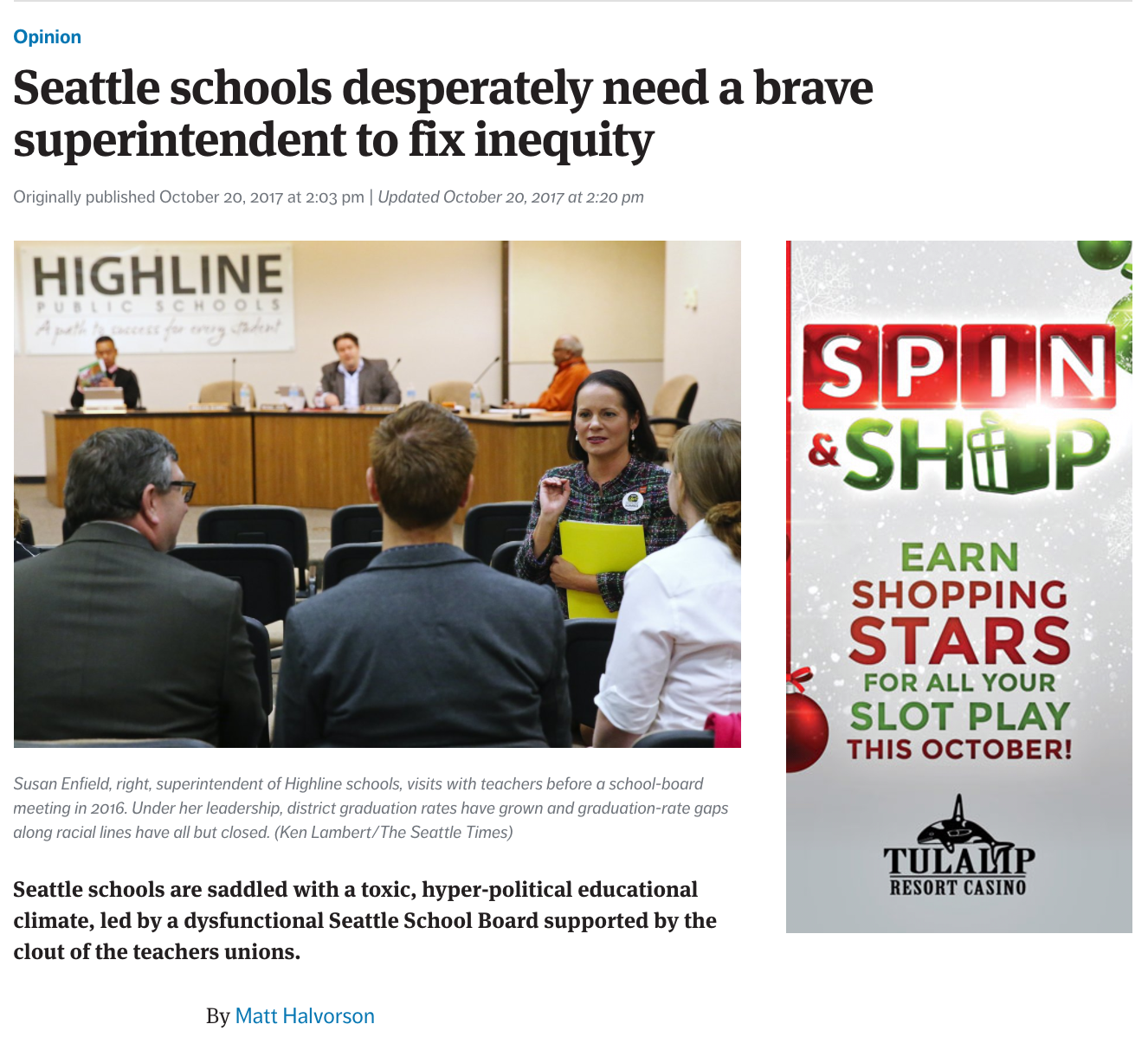I am humbled to share that the Seattle Times published an op-ed that I wrote recently. I'm happy to report it's been quite well-received by people who already know and like me.
A week later, the digital version has more than 150 comments, and I appreciate all the discourse and discussion it has spurred. However, I'm disappointed (but not surprised) to read the number of comments (including from teachers!) blaming parents and families.
We claim to believe that public education is the great equalizer, but that idea rings very hollow when we start down this line of thinking. Essentially, that would be admitting that only the kids lucky enough to have a stable, loving home life with plenty of food and resources are expected to succeed. Others might make it, but it's up to them, as kids, to overcome their own hurdles -- to overcome whatever difficulty they happened to be born into. So, if a kid doesn't arrive at school in pristine learning condition, we just throw our hands up? If we try intervention after intervention, as someone described in one comment, we eventually just give up?
When is it up to the adults to meet the students where they're at as opposed to the other way around? This is the kind of adult-centered thinking about our schools that leaves our kids so high and dry.
Implicit in these comments is that we're talking about kids of color when describing the lower-income kids with the crazier home lives. You know, the home lives that can't possibly be overcome by the poor adult teachers even though they were hired to do exactly the job of teaching all the kids in the class -- not just the ones they find easy to teach. So, if many of these commenters are telling us that families of color are more chaotic than the typical white family, I would ask why they believe that to be true. Is it inherently true that white parents are more stable and loving and involved in their kids' education? Are those just virtues that tend to accompany whiteness? Easy answer: No! That's super racist.
Could you consider with me, on the other hand, that racial inequity in Seattle (and the rest of the country) is a function of a society and a government that has given different opportunities to different groups of people for hundreds of years? We know it's not driven by DNA. The gaps in all sectors must have originated someplace. But you want to blame individual parents?
I would have liked to find more collaboration in these comments in pursuit of solutions. Instead, I've largely read resignation, denial, blame, and plenty of criticism of my word choices. I'm not a teacher. I've never been a principal or a superintendent, and frankly, I don't want to be. I spent four years working in a high school in Oregon with a huge opportunity gap, though, and I've got kids in Seattle. I've volunteered repeatedly in my son's classrooms (although not yet this year) and in others throughout the city, and unlike many of the sector's most vocal critics I've visited just about every charter school in the Puget Sound. But like I said, I'm not the person the School Board should hire to chart our new course. I'm just someone who knows there are deep inequities at play in our schools. Should we wait to call out problems until we have all the answers?
I think we can do better. If we're so good, as some have pointed out, at educating white kids in Seattle, why rest on that laurel? This shows us a glimpse of our potential, but also the depth of our racism and, sadly, our apathy. The depth of our willingness to live in denial for the sake of our own comfort. Why celebrate that without demanding that the right to a high-quality education be extended to all kids?
Let me know what you think.











